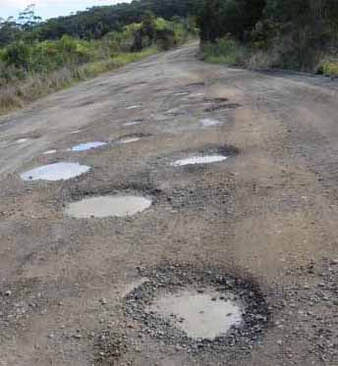 It'’s a good time to borrow money and build the infrastructure we need for Bass Coast.
It'’s a good time to borrow money and build the infrastructure we need for Bass Coast. I’VE read Bass Coast's draft budget papers and am extremely impressed by the comprehensive detail provided by the staff of our Bass Coast Shire. Congratulations to everyone concerned.
The Bass Coast Shire financials are in extremely good shape. But are the budget and forward estimates adequate to fund infrastructure needs?
The budget and forward estimates are very conservatively framed, e.g. budgeted average equity over the next five years is $730 million, budgeted average debt over the next five years is $28 million, and the average annual interest bill in servicing the debt is $640,000.
| We live in extraordinary times with the lowest interest rates on record and rates that are expected to remain low for the foreseeable future, so it’s a good time to borrow money. This means we have a huge opportunity to address the infrastructure issues in the Bass Coast: footpaths, roads and drainage, community facilities. It would also create jobs in the shire. The budget also reveals that a State Government guideline restricting borrowings to 60 per cent of the rate revenue is holding back our shire by not enabling us to borrow sufficient funds. In addition the rate increases are capped at 2 per cent, which is less than the rate of inflation. The formula used to calculate our borrowings of 60 per cent of our rate revenue is no longer valid, I believe, because of such low interest rates. It needs to be changed to a debt to equity ratio to, say, a maximum of 40 per cent, a usual but still conservative business ratio. This would yield $292 million, a significant increase from the $41 million rates ratio. Obviously a change such as this is a matter for councils and the State Government and people like Bass MP Jordan Crugnale MP but infrastructure issues are only increasing in urgency and losing ground. | ON DEBT Bass Coast Shire’s debt is not like household debt. When we take out a mortgage to buy property, the property is the asset against which the loan is secured. The term of the loan is set to enable the borrower to repay the loan in the course of their working life, while the borrower maintains sufficient income to service the loan. When the shire borrows money it does so against an asset which is the productive capacity of the shire’s economy. The shire has the ability to raise income through rates and charges. Unlike a household mortgage, there is no time limit on the repayment of loans because the shire’s economy has no finite lifespan. The shire will never cease to exist. The shire’s economy will continue to grow as the population of the shire grows. The shire can roll over its debt indefinitely and as the shire grows the debt as a percentage of the shire’s economy will fall. That’s why I say “Think the City of Bass Coast and how we are going to get there.” |
So, this is how I see that infrastructure issues can start to be sustainably and substantially addressed and local jobs created. I welcome other suggestions.
Frank Schooneveldt is a former finance director of the A G Coombs group, one of Australia’s biggest building services contractors.
Big-spending budget to kickstart economy
June 19, 2020 - Bass Coast’s $92m draft budget includes a record capital works program.